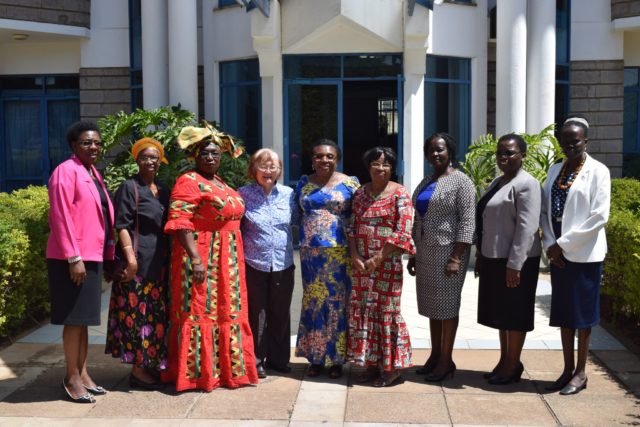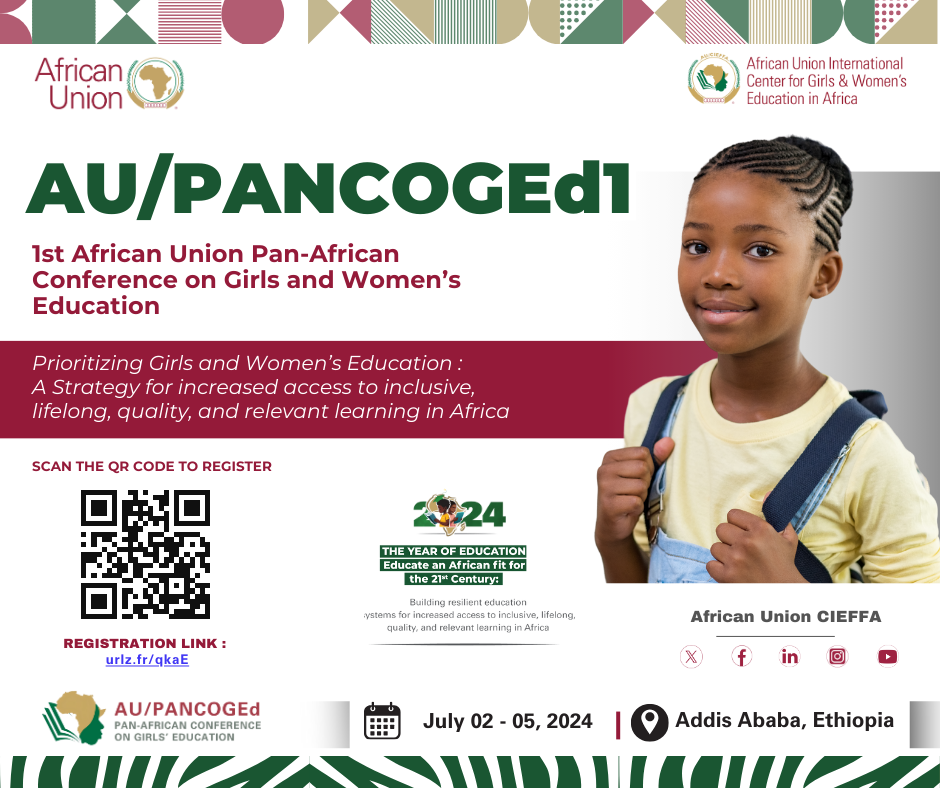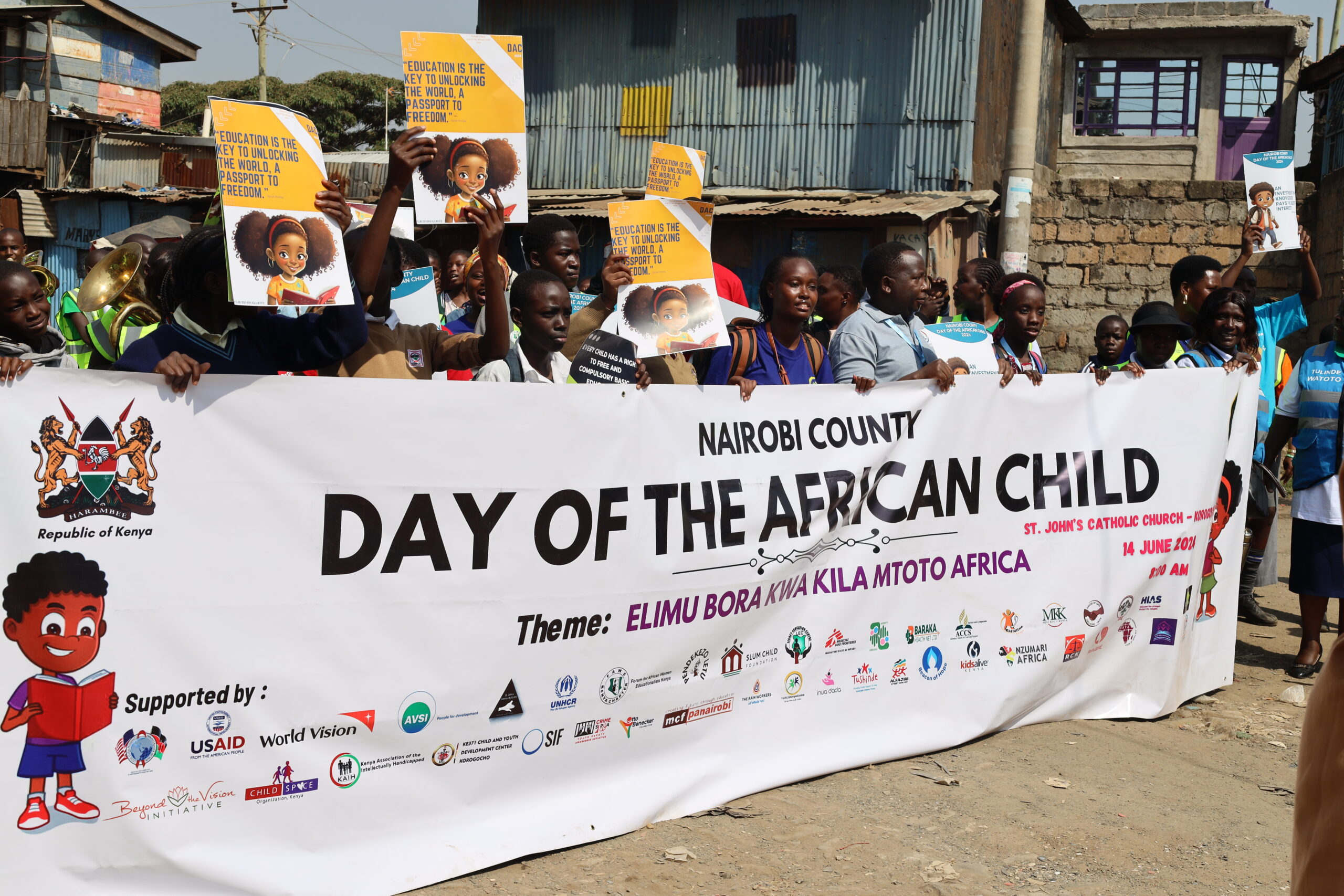Twenty five years! A journey of several steps – long, trying but satisfying. What started as a dream of five female Ministers of Education – Hon. Simone de Comarmond of Seychelles, Hon. Paulette Missambo of Gabon, Hon. Dr Fay Chung of Zimbabwe, Hon. Alice Tiendrebéogo of Burkina Faso and the late Hon. Vida Yeboa of Ghana, in 1992 has become a vivid vision shared by hundreds and thousands of stakeholders. Passed from one vision carrier to the next, the vision has not just remained alive but its influence reverberates across the African continent. FAWE’s campaign message in the signature song, “Send your girl child to school,” echoed from Ghana in the west to Seychelles Island in the Indian Ocean, into DRC in Central Africa and down to Swaziland in the southern hills of Africa; bringing about a tidal wave of change. The campaign for girls’ education reformed African education systems, opening up opportunities and resources for girls’ education; transformed classroom practices and environments to be more responsive to female leaners; brought about societal change of perceptions and attitudes towards female learners and female teachers and education managers; and most importantly, it has resulted in large numbers of women and men whose lives have been transformed as a result of FAWE’s interventions. Amidst some criticism, vehement resistance, frustration and sometimes failure, FAWE has remained true to its original mandate; advocating for girls’ education, and has continued to exist for the purpose of changing the landscape of girls’ education in Africa.
The education community was late to recognize the disproportionate impact poverty on girls’ education, the gendered dimensions of political conflict, gender based violence as a critical barrier to children’s right to education, and the heavy burden of HIV and AIDS, and culture on girls and women. Boldly and with conviction, we approached funding partners with evidence of these nexuses, and gratefully many came through for us, enabling us to design, evolve and demonstrated interventions to mitigate them, thus ensuring that education policies are not implemented in a way that disadvantaged girls and women. Transformation is evident in school environments, management composition and practices, teachers’ pedagogy, and school participation patterns. As well, efforts to cultivate positive gender relations among female and male learners and work force have yielded dividends. However, we take cognisance of the many challenges that still lie ahead of realising gender equality and pledge that the fight against gender inequality will not be won until every girl and boy and woman and man can have uninhibited right to education of good quality.
Thankfully, FAWE’s journey has not been unaccompanied. FAWE galvanised partnerships and joined networks that have not only rallied around the cause but in some cases taken the button and run with the cause. 25 years later, partnerships formed with national governments have remained stable; vision carries – African female education leaders, researchers and gender activists, have remained steadfast in their pursuit of the FAWE vision; networks with regional and continental bodies have been growing in scope and strength; many of the international development partners – bilateral, multilateral, foundations and philanthropists who bought into the FAWE vision as far back as the 1990s are still with us today, and for that we are truly grateful; and our influence has permeated the social cultural fabric of many African countries, causing shifts in traditional values and practices. Most importantly, we have spurred the transformation of thousands of the once despondent African girls and boys from beneficiaries to benefactors. The celebration of FAWE’s accomplishments is not a celebration for FAWE alone but a celebration for Africa. The many milestones scored in girls’ education constitute Africa’s steps towards the gender equality goal in education.
As we prepare to commemorate FAWE’s 25th anniversary, we remain unified in our pursuit of the vision of a world in which all African girls have access to education, perform well and complete their studies, and where gender disparities in education are eliminated. This requires strong commitment from African Ministries of Education, the FAWE National Chapters – our foot soldiers, the international development agencies and donors supporting education in Africa, as well as community leaders and the parent community to collectively support creation of opportunities and resources to advance girls’ education and close the gender gaps in education. The commemoration of 25 years of FAWE coincides with FAWE’s 10th General Assembly (GA); a platform for review, reflection and forward looking, and also with the initiation of planning for FAWE’s sixth Strategic Plan. We invite all our partners to join us at the GA to help us plan how to position FAWE to play a more significant role in propelling education development in Africa.






Leave A Comment